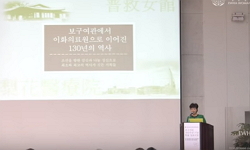Legal capacity and capacity to act are basic concepts for composing and understanding civil law as the basic law of social life. However, if you compare the civil laws of South Korea and North Korea, the rules on capabilities in civil law are not comp...
http://chineseinput.net/에서 pinyin(병음)방식으로 중국어를 변환할 수 있습니다.
변환된 중국어를 복사하여 사용하시면 됩니다.
- 中文 을 입력하시려면 zhongwen을 입력하시고 space를누르시면됩니다.
- 北京 을 입력하시려면 beijing을 입력하시고 space를 누르시면 됩니다.

통일 한국에서의 자연인의 권리능력과 행위능력 = Legal capacity and capacity to act of natural person in a unified Korea
한글로보기https://www.riss.kr/link?id=A108106339
- 저자
- 발행기관
- 학술지명
- 권호사항
-
발행연도
2022
-
작성언어
-
- 주제어
-
KDC
300
-
등재정보
KCI등재
-
자료형태
학술저널
-
수록면
147-170(24쪽)
- 제공처
- 소장기관
-
0
상세조회 -
0
다운로드
부가정보
다국어 초록 (Multilingual Abstract)
The civil law in South Korea was enacted on the basis of the capitalist economic system, and the civil law in North Korea was established on the basis of the socialist economic system. Civil law between South Korea and North Korea has been operated independently for decades, and its characteristics are completely different from the start. As a means of determining the civil law of a unified Korea, there is a limit to simply comparing and examining the laws of South Korea and North Korea.
The direction of the discussion about the civil law to be applied after the unification of South Korea and North Korea can be completely different depending on the following two factors. - ① In what form will it be unified ?, ② What economic system will you choose after unification?
In this thesis, the civil law after unification was reviewed, and it was premised on the changed unification method of the government or the people that appeared in reports on recent government policies and public opinion. First, from the general point of view, the direction in which civil law to be applied in Korea after unification should be enacted was presented. Next, from a detailed point of view, the direction of the legislation of the legal capacity and capacity to act of natural person and the legislative proposal were presented. Despite many efforts, research on the laws of South Korea and North Korea is still limited. It is hoped that this thesis can contribute to minimizing the gap between the two Koreas' legal systems.
Legal capacity and capacity to act are basic concepts for composing and understanding civil law as the basic law of social life. However, if you compare the civil laws of South Korea and North Korea, the rules on capabilities in civil law are not completely consistent. Therefore, if we prepare a unified civil law that regulates property and status relations by unification in the future, how to regulate civil law capabilities in a unified Korea will be a very important issue.
The civil law in South Korea was enacted on the basis of the capitalist economic system, and the civil law in North Korea was established on the basis of the socialist economic system. Civil law between South Korea and North Korea has been operated independently for decades, and its characteristics are completely different from the start. As a means of determining the civil law of a unified Korea, there is a limit to simply comparing and examining the laws of South Korea and North Korea.
The direction of the discussion about the civil law to be applied after the unification of South Korea and North Korea can be completely different depending on the following two factors. - ① In what form will it be unified ?, ② What economic system will you choose after unification?
In this thesis, the civil law after unification was reviewed, and it was premised on the changed unification method of the government or the people that appeared in reports on recent government policies and public opinion. First, from the general point of view, the direction in which civil law to be applied in Korea after unification should be enacted was presented. Next, from a detailed point of view, the direction of the legislation of the legal capacity and capacity to act of natural person and the legislative proposal were presented. Despite many efforts, research on the laws of South Korea and North Korea is still limited. It is hoped that this thesis can contribute to minimizing the gap between the two Koreas' legal systems.
동일학술지(권/호) 다른 논문
-
- 한국법정책학회
- 김판기
- 2022
- KCI등재
-
- 한국법정책학회
- 최주필
- 2022
- KCI등재
-
- 한국법정책학회
- 조용기
- 2022
- KCI등재
-
- 한국법정책학회
- 조원용
- 2022
- KCI등재




 KISS
KISS







